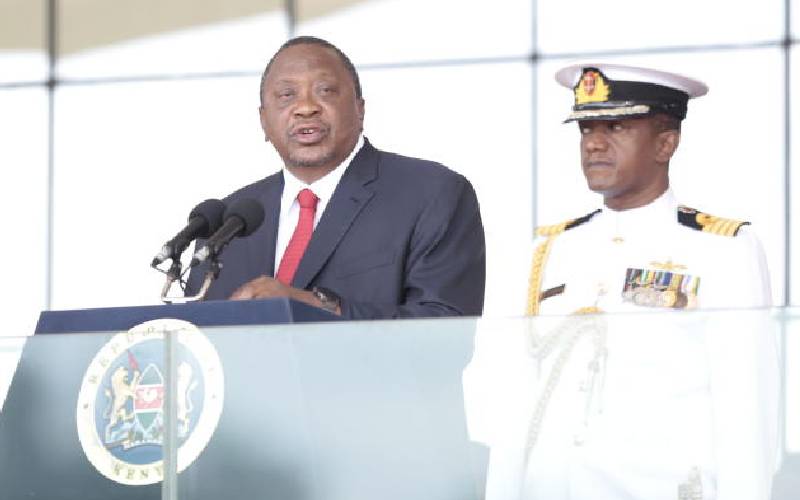
President Uhuru Kenyatta took his last national celebration speech to outline his successes (and they are numerous), defend his decision to forge a rapprochement with his political foe-turned-buddy Raila Odinga and to put his deputy William Ruto in his right place.
He also took time beat back the wave of cynicism and the lack of a sense of accomplishment by celebrating the March 2018 handshake, regretting what seems (to him) to be five wasted years with his deputy (2013-2017) and five rewarding years with Tinga (Mr Odinga) in his wings.